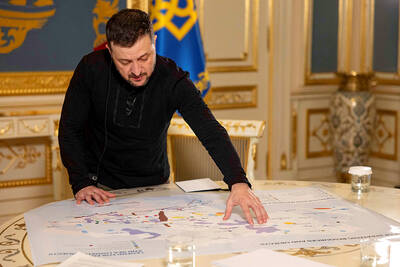Bolivian President Evo Morales committed himself and Bolivia's nine governors on Monday to face recall votes on Aug. 10, gambling that his unfinished term would survive a referendum whose peculiar rules tilt in the populist leader’s favor.
“Personally I have no fear of the people,” Morales said. “Let the people judge us.”
Morales originally proposed the recall vote in December amid a fierce battle over his proposed draft constitution that would increase the political power of Bolivia’s long-oppressed indigenous majority. Bolivia’s lower house of Congress approved it.
But the idea went nowhere until last week, when it was revived by the opposition-controlled Senate.
The president’s opponents figured Morales had been weakened by the landslide victory of the autonomy measure in Santa Cruz, Bolivia’s largest and richest state. But they rushed the recall referendum through without considering the fine print — which clearly gives Morales the upper hand.
The referendum requires removal from office if the officials get more “no” votes than the votes they won when they were elected in 2005. The percentage of “no” votes also must top the candidates’ previous winning percentage.
Morales won the presidency with 53.7 percent of the vote, a historic mandate in a country where presidents sometimes take office with half as much support.
If 54 percent vote against him in August — and the “no” votes top the 1.5 million ballots he won in 2005 — he would be forced to call for a new presidential election.
If either “no” count falls short — for example, if 1.6 million Bolivians vote against Morales but turnout is high enough to keep their votes below 53.7 percent — he would remain in office.
Bolivia’s governors, however, all won office with less than 50 percent of the vote — setting a much lower bar for their “no” votes.
The opposition governor of La Paz state, Jose Luis Paredes, won the pro-Morales stronghold with only 38 percent in 2005. If 39 percent of the state votes against him in the recall, he would be removed from office — even if 61 percent vote to keep him.
Should Morales lose, he must call a new presidential election to be held between three and six months.

Thousands gathered across New Zealand yesterday to celebrate the signing of the country’s founding document and some called for an end to government policies that critics say erode the rights promised to the indigenous Maori population. As the sun rose on the dawn service at Waitangi where the Treaty of Waitangi was first signed between the British Crown and Maori chiefs in 1840, some community leaders called on the government to honor promises made 185 years ago. The call was repeated at peaceful rallies that drew several hundred people later in the day. “This government is attacking tangata whenua [indigenous people] on all

RIGHTS FEARS: A protester said Beijing would use the embassy to catch and send Hong Kongers to China, while a lawmaker said Chinese agents had threatened Britons Hundreds of demonstrators on Saturday protested at a site earmarked for Beijing’s controversial new embassy in London over human rights and security concerns. The new embassy — if approved by the British government — would be the “biggest Chinese embassy in Europe,” one lawmaker said earlier. Protester Iona Boswell, a 40-year-old social worker, said there was “no need for a mega embassy here” and that she believed it would be used to facilitate the “harassment of dissidents.” China has for several years been trying to relocate its embassy, currently in the British capital’s upmarket Marylebone district, to the sprawling historic site in the

A deluge of disinformation about a virus called hMPV is stoking anti-China sentiment across Asia and spurring unfounded concerns of renewed lockdowns, despite experts dismissing comparisons with the COVID-19 pandemic five years ago. Agence France-Presse’s fact-checkers have debunked a slew of social media posts about the usually non-fatal respiratory disease human metapneumovirus after cases rose in China. Many of these posts claimed that people were dying and that a national emergency had been declared. Garnering tens of thousands of views, some posts recycled old footage from China’s draconian lockdowns during the COVID-19 pandemic, which originated in the country in late

BACK TO BATTLE: North Korean soldiers have returned to the front lines in Russia’s Kursk region after earlier reports that Moscow had withdrawn them following heavy losses Ukrainian President Volodymyr Zelenskiy on Friday pored over a once-classified map of vast deposits of rare earths and other critical minerals as part of a push to appeal to US President Donald Trump’s penchant for a deal. The US president, whose administration is pressing for a rapid end to Ukraine’s war with Russia, on Monday said he wanted Ukraine to supply the US with rare earths and other minerals in return for financially supporting its war effort. “If we are talking about a deal, then let’s do a deal, we are only for it,” Zelenskiy said, emphasizing Ukraine’s need for security guarantees